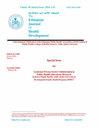伊朗一家综合医院取消手术的经济影响
IF 0.5
4区 医学
Q4 PUBLIC, ENVIRONMENTAL & OCCUPATIONAL HEALTH
引用次数: 19
摘要
背景:外科手术的取消给医疗服务提供者和患者带来了经济负担。它还会造成潜在的情绪压力,并对护理质量的感知产生负面影响。鉴于修改,应优先确定手术取消的风险,以确保及时有效地提供护理。目的:确定和估算综合性医院取消选择性手术的费用。方法:资料来源于伊朗某社会保障机构总医院。从2011年3月21日至2012年3月20日,对所有计划进行择期手术的患者的住院医疗记录进行了审查。成本数据收集于2014年。接受门诊手术和紧急外科手术的患者被排除在研究之外。结果:在研究期间,14,687例患者计划接受住院选择性外科手术。取消274例,其中手术病房准备取消242例,手术室取消32例。取消手术的总费用为92 049.0美元。其中:42,668.0美元(46.4%)与床位费用有关;32,363.0美元(35.1%)用于与资源和用品相关的直接成本;16,569美元(18.5%)与看医生有关。结论:本研究表明,在所研究的综合医院,手术取消费用相当高。手术取消费用的一半以上(62.1%)是由于可避免的原因。[阿比西尼亚人。[j]卫生发展,2016,30(2):92-95]关键词:疾病成本;取消费用;直接成本;手术取消费用。本文章由计算机程序翻译,如有差异,请以英文原文为准。
Economic impact of surgery cancellation in a general hospital, Iran
Abstract Background: Cancellation of surgical procedures creates a financial burden to health providers and patients. It also causes a potential emotional stress and a negative impact on perception of quality of care. It should be a priority to identify risks of surgery cancellations in view of modification to assure timely and efficient delivery of care. Objective: To identify and estimate costs borne by cancelation of elective surgeries in a general hospital. Methods: Data were collected from a general hospital of social security organization of Iran. In-patient medical records were reviewed for all patients scheduled for elective surgeries in a period of 1 year, starting from 21stof March 2011 to 20th of March 2012. The costing data were collected in 2014. Patients undergoing out-patient surgery and emergency surgical procedures were excluded from the study. Results: During the study period, 14,687 cases were scheduled to undergo inpatient elective surgical procedures. Of those 274 cases were cancelled, among the cancelled cases, 242 were cancelled during the preparation in the surgery ward and 32 cases were cancelled in operation room. The total cost of surgery cancellation was US$ 92, 049.0. Out of this: US$ 42,668.0 (46.4%) was related to bed expense; 32,363.0$US (35.1%) for direct costs related to resources and supplies; and US$ 16,569 (18.5%) was related to physician visits. Conclusion: The study demonstrated that cost of surgery cancelation was considerably high in the studied general hospital. More than half of the cost (62.1%) of surgery cancelation was due to avoidable reasons. [Ethiop. J. Health Dev. 2016;30(2):92-95] Keyword: Cost of illness; Cost of Cancelation; Direct Cost; Surgery Cancelation Cost.
求助全文
通过发布文献求助,成功后即可免费获取论文全文。
去求助
来源期刊

Ethiopian Journal of Health Development
PUBLIC, ENVIRONMENTAL & OCCUPATIONAL HEALTH-
CiteScore
0.80
自引率
0.00%
发文量
0
审稿时长
>12 weeks
期刊介绍:
The Ethiopian Journal of Health Development is a multi and interdisciplinary platform that provides space for public health experts in academics, policy and programs to share empirical evidence to contribute to health development agenda.
We publish original research articles, reviews, brief communications and commentaries on public health issues, to inform current research, policy and practice in all areas of common interest to the scholars in the field of public health, social sciences and humanities, health practitioners and policy makers. The journal publishes material relevant to any aspect of public health from a wide range of fields: epidemiology, environmental health, health economics, reproductive health, behavioral sciences, nutrition, psychiatry, social pharmacy, medical anthropology, medical sociology, clinical psychology and wide arrays of social sciences and humanities.
The journal publishes the following types of contribution:
1) Peer-reviewed original research articles and critical or analytical reviews in any area of social public health. These papers may be up to 3,500 words excluding abstract, tables, and references. Papers below this limit are preferred.
2) Peer-reviewed short reports of research findings on topical issues or published articles of between 2000 and 4000 words.
3) Brief communications, and commentaries debating on particular areas of focus, and published alongside, selected articles.
4) Special Issues bringing together collections of papers on a particular theme, and usually guest edited.
5) Editorial that flags critical issues of public health debate for policy, program and scientific consumption or further debate
 求助内容:
求助内容: 应助结果提醒方式:
应助结果提醒方式:


